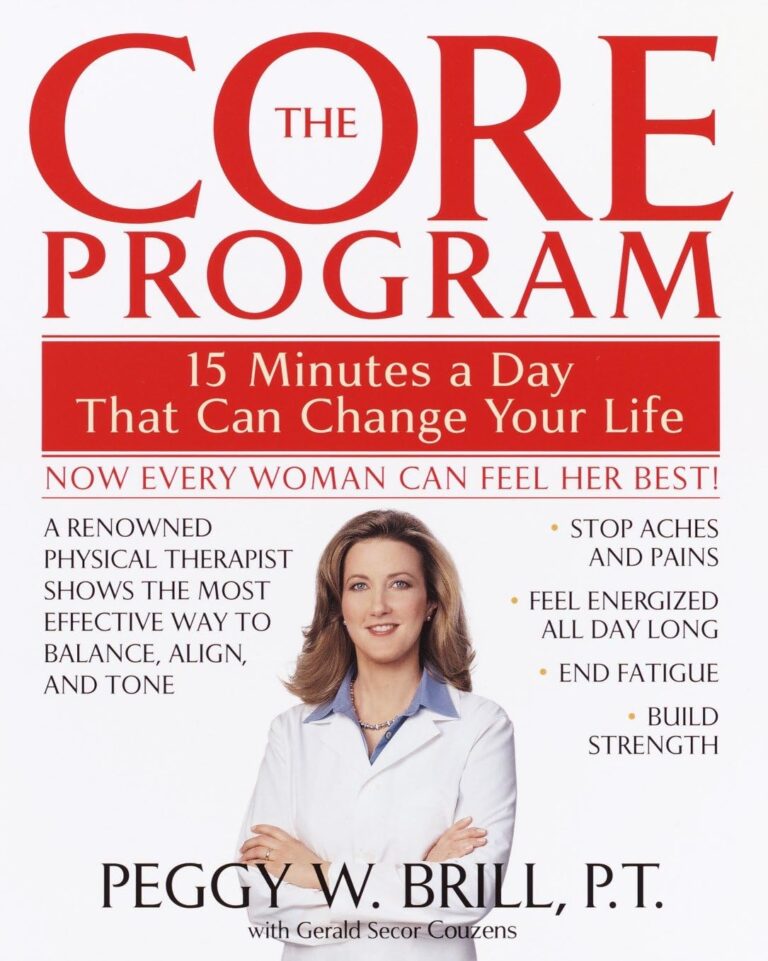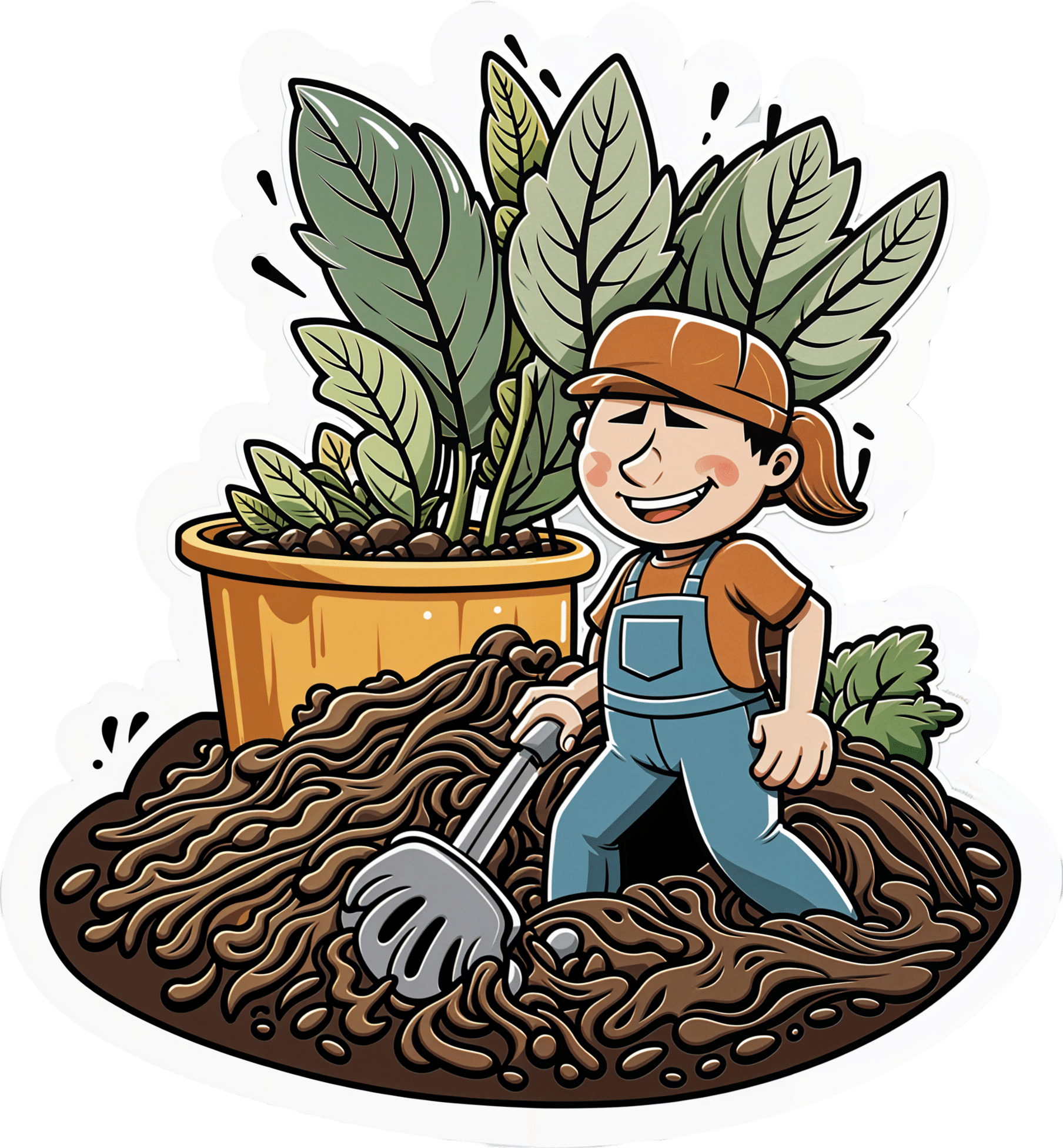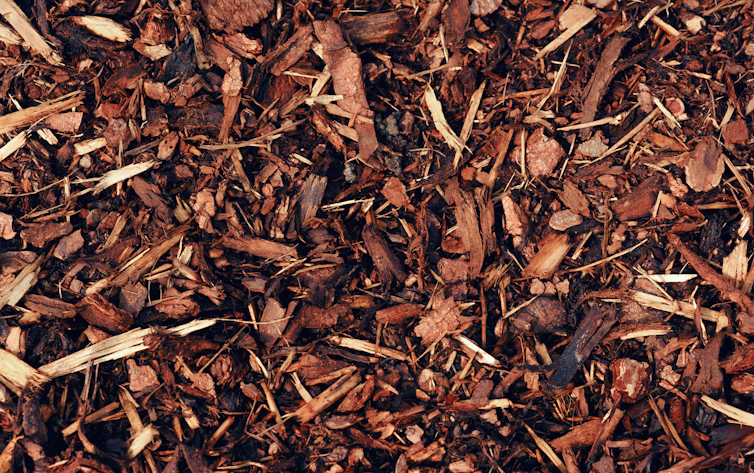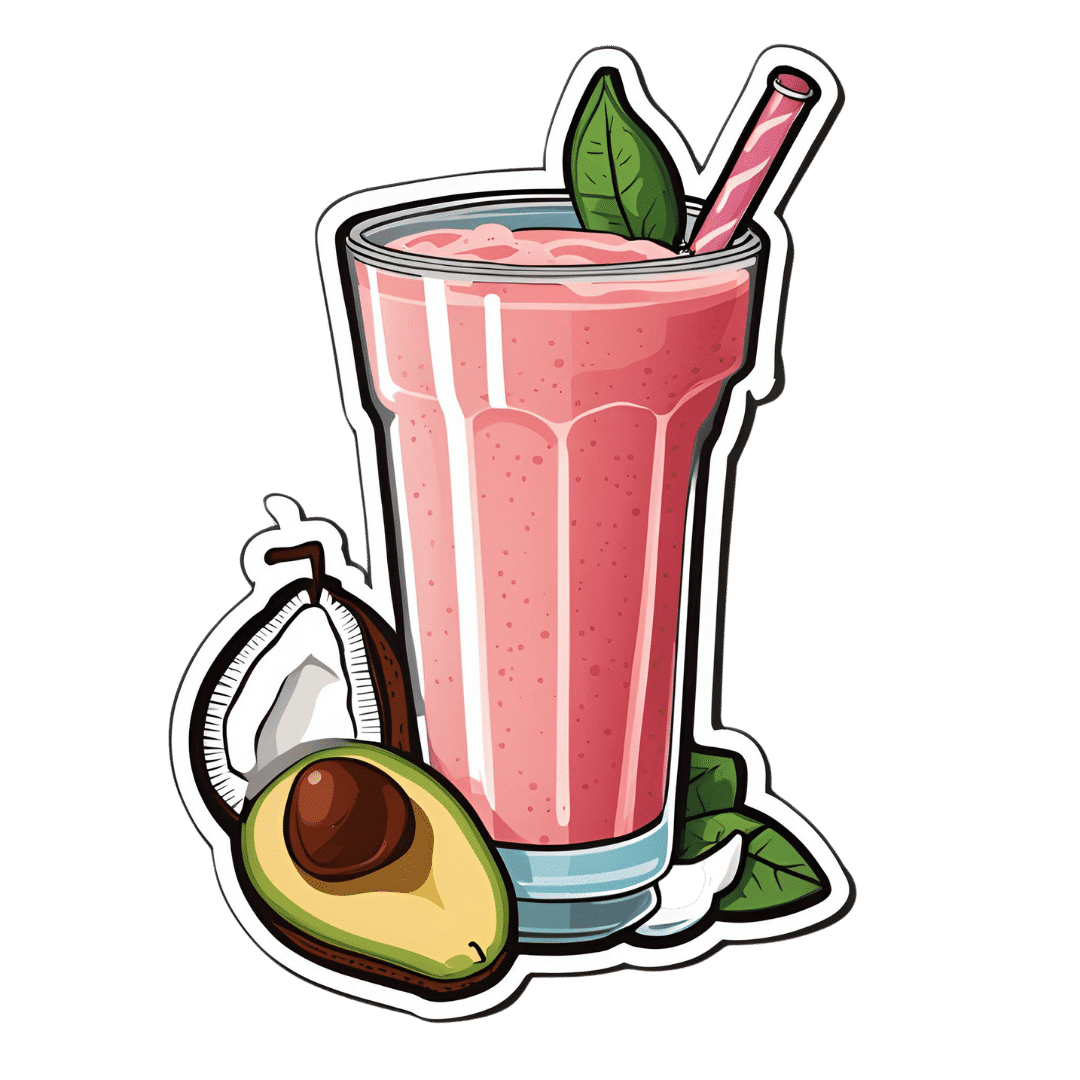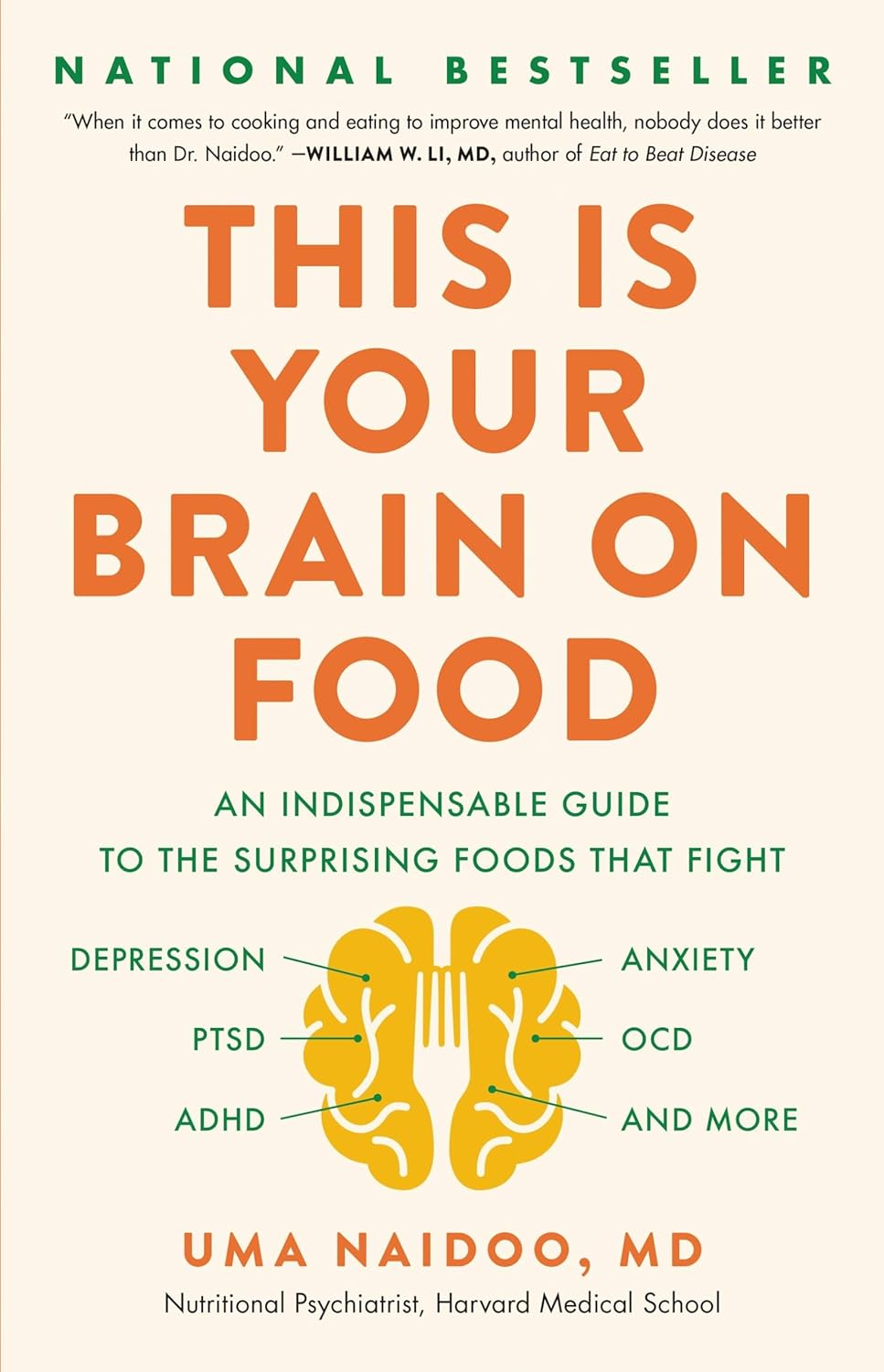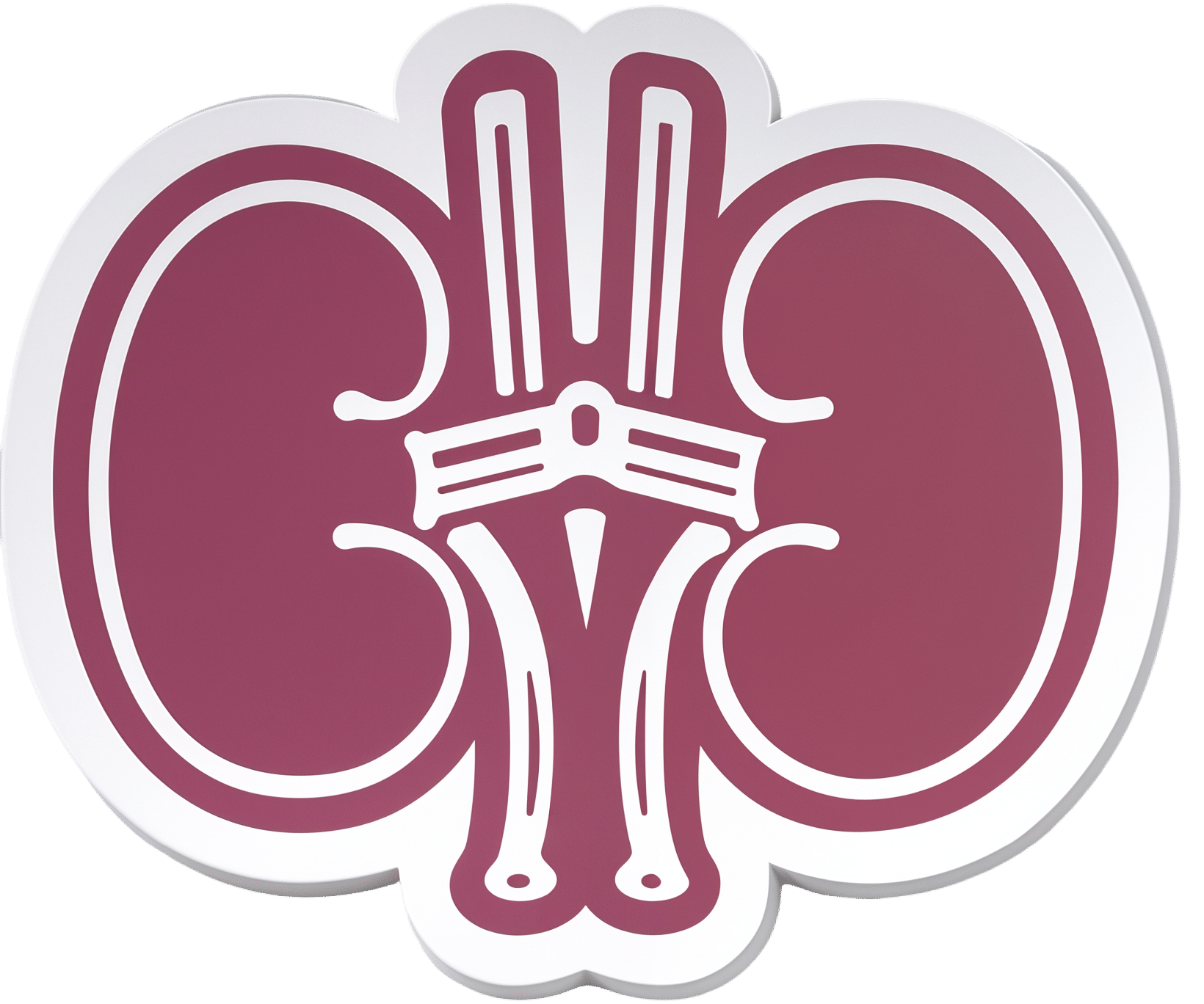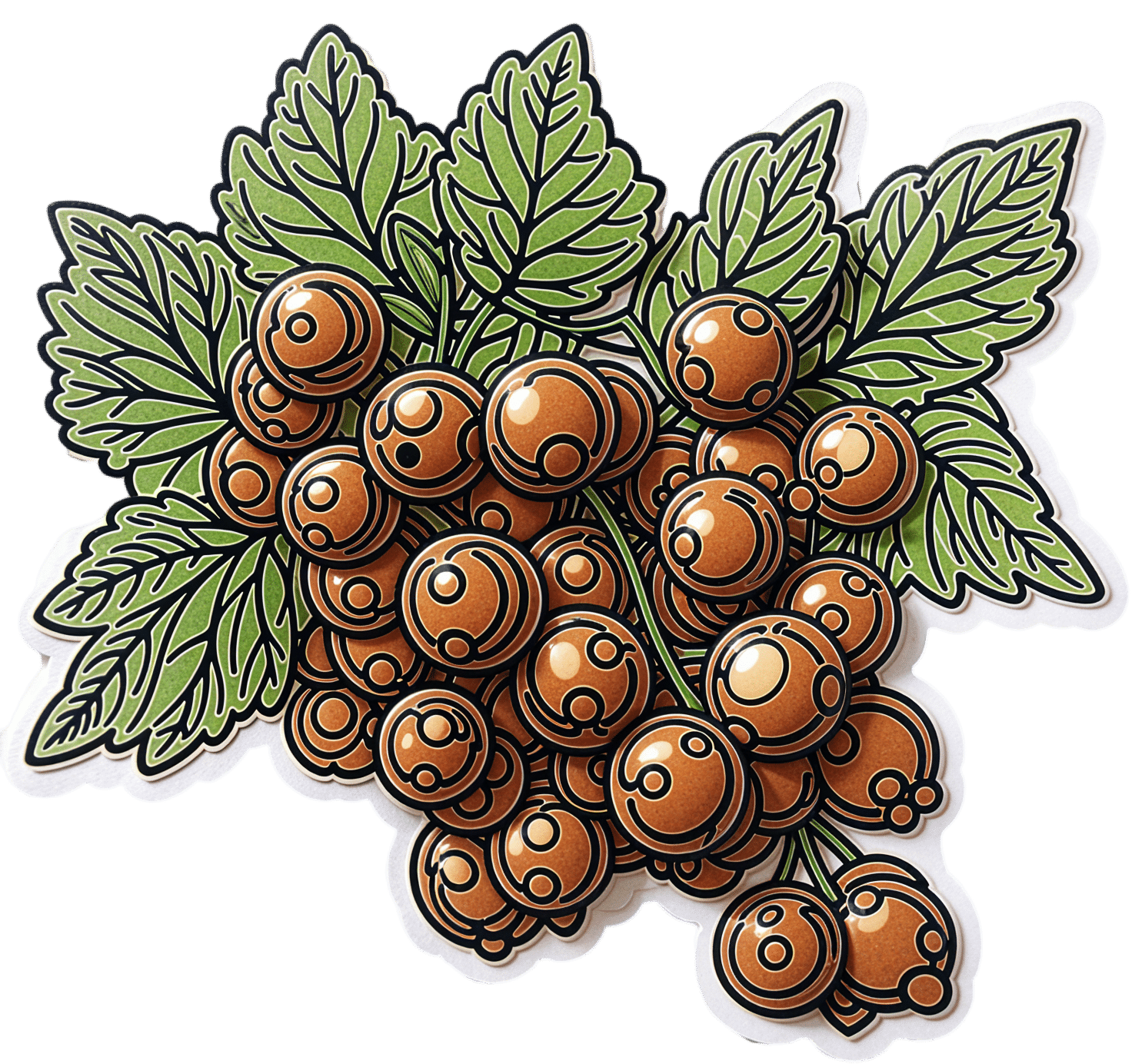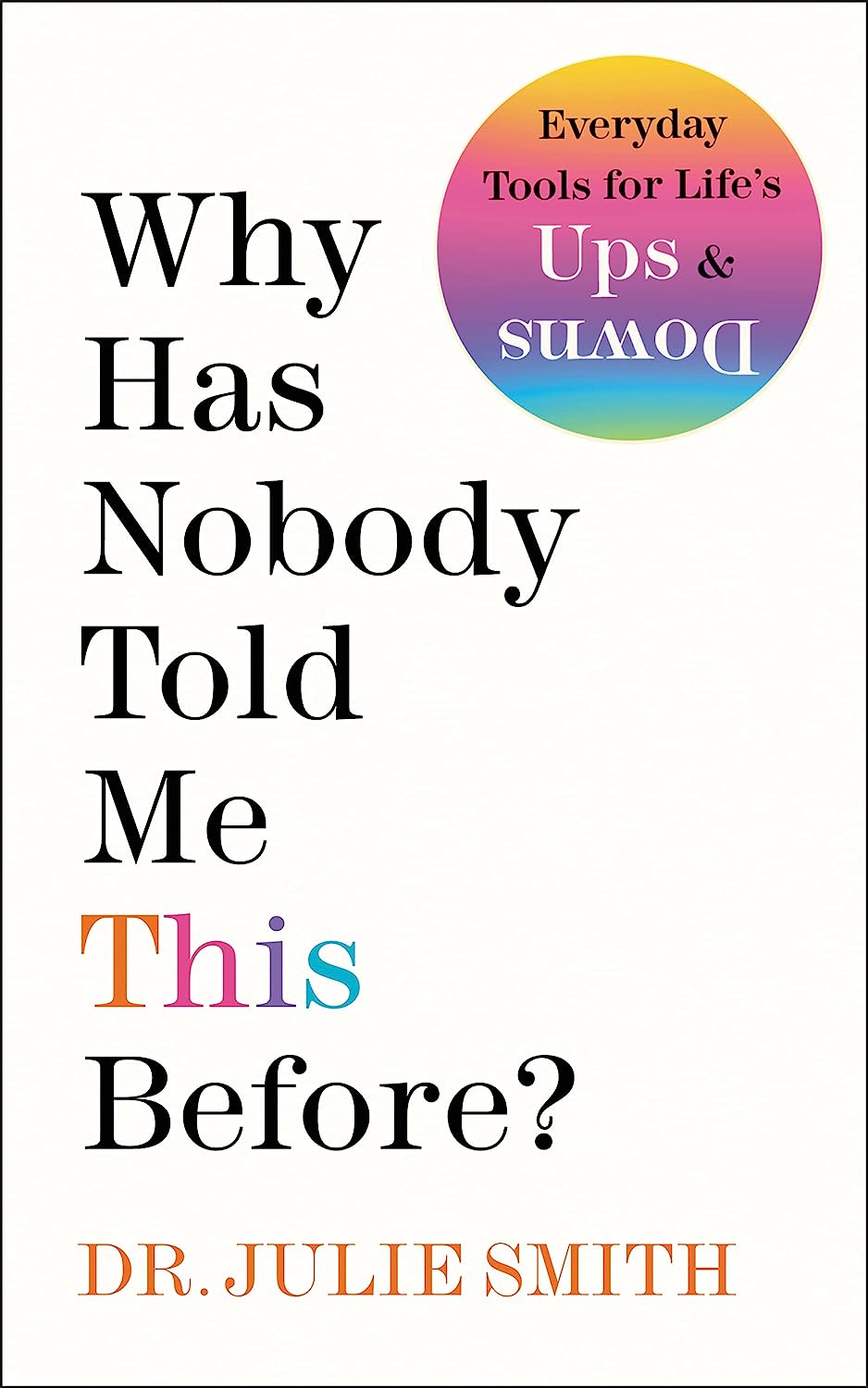
Why Has Nobody Told Me This Before? – by Dr. Julie Smith
10almonds is reader-supported. We may, at no cost to you, receive a portion of sales if you purchase a product through a link in this article.
Superficially, this can be called a “self-help” book, but that undersells it rather. It’s a professionally-written (as in, by a professional psychologist) handbook full of resources. Its goal? Optimizing your mental health to help you stay resilient no matter what life throws your way.
While the marketing of this book is heavily centered around Dr. Smith’s Internet Celebrity™ status, a lot of her motivation for writing it seems to be precisely so that she can delve deeper into the ideas that her social media “bites” don’t allow room for.
Many authors of this genre pad their chapters with examples; there are no lengthy story-telling asides here, and her style doesn’t need them. She knows her field well, and knows well how to communicate the ideas that may benefit the reader.
The main “meat” of the book? Tips, tricks, guides, resources, systems, flowcharts, mental frameworks, and “if all else fails, do this” guidance. The style of the book is clear and simple, with very readable content that she keeps free from jargon without “dumbing down” or patronizing the reader.
All in all, a fine set of tools for anyone’s “getting through life” toolbox.
Get Your Personal Copy Of “Why Has Nobody Told Me This Before?” on Amazon Now!
Don’t Forget…
Did you arrive here from our newsletter? Don’t forget to return to the email to continue learning!
Recommended
Learn to Age Gracefully
Join the 98k+ American women taking control of their health & aging with our 100% free (and fun!) daily emails:
-
Asbestos in mulch? Here’s the risk if you’ve been exposed
10almonds is reader-supported. We may, at no cost to you, receive a portion of sales if you purchase a product through a link in this article.
Mulch containing asbestos has now been found at 41 locations in New South Wales, including Sydney parks, schools, hospitals, a supermarket and at least one regional site. Tests are under way at other sites.
As a precautionary measure, some parks have been cordoned off and some schools have closed temporarily. Fair Day – a large public event that traditionally marks the start of Mardi Gras – was cancelled after contaminated mulch was found at the site.
The New South Wales government has announced a new taskforce to help investigate how the asbestos ended up in the mulch.
Here’s what we know about the risk to public health of mulch contaminated with asbestos, including “friable” asbestos, which has been found in one site (Harmony Park in Surry Hills).
What are the health risks of asbestos?
Asbestos is a naturally occurring, heat-resistant fibre that was widely used in building materials from the 1940s to the 1980s. It can be found in either a bonded or friable form.
Bonded asbestos means the fibres are bound in a cement matrix. Asbestos sheeting that was used for walls, fences, roofs and eaves are examples of bonded asbestos. The fibres don’t escape this matrix unless the product is severely damaged or worn.
A lot of asbestos fragments from broken asbestos products are still considered bonded as the fibres are not released as they lay on the ground.
Asbestos sheeting was used for walls and roofs.
Tomas Regina/ShutterstockFriable asbestos, in contrast, can be easily crumbled by touch. It will include raw asbestos fibres and previously bonded products that have worn to the point that they crumble easily.
The risk of disease from asbestos exposure is due to the inhalation of fibres. It doesn’t matter if those fibres are from friable or bonded sources.
However, fibres can more easily become airborne, and therefore inhalable, if the asbestos is friable. This means there is more of a risk of exposure if you are disturbing friable asbestos than if you disturb fragments of bonded asbestos.
Who is most at risk from asbestos exposure?
The most important factor for disease risk is exposure – you actually have to inhale fibres to be at risk of disease.
Just being in the vicinity of asbestos, or material containing asbestos, does not put you at risk of asbestos-related disease.
For those who accessed the contaminated areas, the level of exposure will depend on disturbing the asbestos and how many fibres become airborne due to that disturbance.
However, if you have been exposed to, and inhaled, asbestos fibres it does not mean you will get an asbestos-related disease. Exposure levels from the sites across Sydney will be low and the chance of disease is highly unlikely.
The evidence for disease risk from ingestion remains highly uncertain, although you are not likely to ingest sufficient fibres from the air, or even the hand to mouth activities that may occur with playing in contaminated mulch, for this to be a concern.
The risk of disease from exposure depends on the intensity, frequency and duration of that exposure. That is, the more you are exposed to asbestos, the greater the risk of disease.
Most asbestos-related disease has occurred in people who work with raw asbestos (for example, asbestos miners) or asbestos-containing products (such as building tradespeople). This has been a tragedy and fortunately asbestos is now banned.
There have been cases of asbestos-related disease, most notably mesothelioma – a cancer of the lining of the lung (mostly) or peritoneum – from non-occupational exposures. This has included people who have undertaken DIY home renovations and may have only had short-term exposures. The level of exposure in these cases is not known and it is also impossible to determine if those activities have been the only exposure.
There is no known safe level of exposure – but this does not mean that one fibre will kill. Asbestos needs to be treated with caution.
As far as we are aware, there have been no cases of mesothelioma, or other asbestos-related disease, that have been caused by exposure from contaminated soils or mulch.
Has asbestos been found in mulch before?
Asbestos contamination of mulch is, unfortunately, not new. Environmental and health agencies have dealt with these situations in the past. All jurisdictions have strict regulations about removing asbestos products from the green waste stream but, as is happening in Sydney now, this does not always happen.
Mulch contamination is not new.
gibleho/ShutterstockWhat if I’ve been near contaminated mulch?
Exposure from mulch contamination is generally much lower than from current renovation or construction activities and will be many orders of magnitude lower than past occupational exposures.
Unlike activities such as demolition, construction and mining, the generation of airborne fibres from asbestos fragments in mulch will be very low. The asbestos contamination will be sparsely spread throughout the mulch and it is unlikely there will be sufficient disturbance to generate large quantities of airborne fibres.
Despite the low chance of exposure, if you’re near contaminated mulch, do not disturb it.
If, by chance, you have had an exposure, or think you have had an exposure, it’s highly unlikely you will develop an asbestos-related disease in the future. If you’re worried, the Asbestos Safety and Eradication Agency is a good source of information.
Peter Franklin, Associate Professor and Director, Occupational Respiratory Epidemiology, The University of Western Australia
This article is republished from The Conversation under a Creative Commons license. Read the original article.
Share This Post
-
5 Ways To Make Your Smoothie Blood Sugar Friendly (Avoid the Spike!)
10almonds is reader-supported. We may, at no cost to you, receive a portion of sales if you purchase a product through a link in this article.
At 10almonds, we are often saying “eat whole fruit; don’t drink your calories”. Whole fruit is great for blood sugars; fruit juices and many smoothies on the other hand, not so much. Especially juices, being near-completely or perhaps even completely stripped of fiber, but even smoothies have had a lot of the fiber broken down and are still a liquid, meaning they are very quickly and easily digestible, and thus their sugars (whatever carbs are in there) can just zip straight into your veins.
However, there are ways to mitigate this…
Slow it down
The theme here is “give the digestive process something else to do”; some things are more quickly and easily digestible than others, and if it’s working on breaking down some of the slower things, it’s not waving sugars straight on through; they have to wait their turn.
To that end, recommendations include:
- Full-fat Greek yogurt which provides both protein and fat, helping to slow down the absorption of sugar. Always choose unsweetened versions to avoid added sugars, though!
- Coconut milk (canned) which is low in sugar and carbs, high in fat. This helps reduce blood sugar spikes, as she found through personal experimentation too.
- Avocado which is rich in healthy fats that help stabilize blood sugar. As a bonus, it blends well into smoothies without affecting the taste much.
- Coconut oil which contains medium-chain triglycerides (MCTs) that are quickly absorbed for energy without involving glucose, promoting fat-burning and reducing blood sugar spikes.
- Collagen powder which is a protein that helps lower blood sugar spikes while also supporting muscle growth, skin, and joints.
For more on all of these, enjoy:
Click Here If The Embedded Video Doesn’t Load Automatically!
Want to learn more?
You might also like to read:
Take care!
Share This Post
-
This Is Your Brain on Food – by Dr. Uma Naidoo
10almonds is reader-supported. We may, at no cost to you, receive a portion of sales if you purchase a product through a link in this article.
“Diet will fix your brain” is a bold claim that often comes from wishful thinking and an optimistic place where anecdote is louder than evidence. But, diet does incontrovertibly also affect brain health. So, what does Dr. Naidoo bring to the table?
The author is a Harvard-trained psychiatrist, a professional chef who graduated with her culinary school’s most coveted award, and a trained-and-certified nutritionist. Between those three qualifications, it’s safe to she knows her stuff when it comes to the niche that is nutritional psychiatry. And it shows.
She takes us through the neurochemistry involved, what chemicals are consumed, made, affected, inhibited, upregulated, etc, what passes through the blood-brain barrier and what doesn’t, what part the gut really plays in its “second brain” role, and how we can leverage that—as well as mythbusting a lot of popular misconceptions about certain foods and moods.
There’s hard science in here, but presented in quite a pop-science way, making for a very light yet informative read.
Bottom line: if you’d like to better understand what your food is doing to your brain (and what it could be doing instead), then this is a top-tier book for you!
Click here to check out This Is Your Brain On Food, and get to know yours!
Share This Post
Related Posts
-
Keeping Your Kidneys Healthy (Especially After 60)
10almonds is reader-supported. We may, at no cost to you, receive a portion of sales if you purchase a product through a link in this article.
Keeping your kidneys happy: it’s more than just hydration!
Your kidneys are very busy organs. They filter waste products, balance hydration, pH, salt, and potassium. They also make some of our hormones, and are responsible for regulating red blood cell production too. They also handle vitamin D in a way our bodies would not work without, making them essential for calcium absorption and the health of our bones, and even muscular function.
So, how to keep them in good working order?
Yes, hydrate
This is obvious and may go without saying, but we try to not leave important things without saying. So yes, get plenty of water, spread out over the day (you can only usefully absorb so much at once!). If you feel thirsty, you’re probably already dehydrated, so have a little (hydrating!) drink.
Don’t smoke
It’s bad for everything, including your kidneys.
Look after your blood
Not just “try to keep it inside your body”, but also:
- Keep your blood sugar levels healthy (hyperglycemia can cause kidney damage)
- Keep your blood pressure healthy (hypertension can cause kidney damage)
Basically, your kidneys’ primary job of filtering blood will go much more smoothly if that blood is less problematic on the way in.
Watch your over-the-counter pill intake
A lot of PRN OTC NSAIDs (PRN = pro re nata, i.e. you take them as and when symptoms arise) (NSAIDs = Non-Steroidal Anti-Inflammatory Drugs, such as ibuprofen for example) can cause kidney damage if taken regularly.
Many people take ibuprofen (for example) constantly for chronic pain, especially the kind cause by chronic inflammation, including many autoimmune diseases.
It is recommended to not take them for more than 10 days, nor more than 8 per day. Taking more than that, or taking them for longer, could damage your kidneys temporarily or permanently.
Read more: National Kidney Foundation: Advice About Pain Medicines
See also: Which Drugs Are Harmful To Your Kidneys?
Get a regular kidney function checkup if you’re in a high risk group
Who’s in a high risk group?
- If you’re over 60
- If you have diabetes
- If you have cardiovascular disease
- If you have high blood pressure
- If you believe, or know, you have existing kidney damage
The tests are very noninvasive, and will be a urine and/or blood test.
For more information, see:
Kidney Testing: Everything You Need to Know
Take care!
Don’t Forget…
Did you arrive here from our newsletter? Don’t forget to return to the email to continue learning!
Learn to Age Gracefully
Join the 98k+ American women taking control of their health & aging with our 100% free (and fun!) daily emails:
-
Here’s the latest you need to know about bird flu
10almonds is reader-supported. We may, at no cost to you, receive a portion of sales if you purchase a product through a link in this article.
What you need to know
- Although bird flu continues to spread in wild birds, livestock, and humans, the risk to the public remains low.
- The majority of U.S. bird flu cases have been reported in farm workers who had direct contact with infected birds and cattle. Health officials are working to monitor the spread of the virus and improve protections for those most at risk.
- Recent data suggests that mutations in bird flu viruses could make them more dangerous to humans and potentially increase the risk of a pandemic.
- On January 6, Louisiana health officials confirmed the first U.S. death from bird flu.
Throughout 2024, dozens of human cases of H5N1 bird flu were detected as the virus spreads rapidly in livestock. The current risk to humans is low but not nonexistent. Here’s everything you need to know about the current status and future outlook of H5 bird flu in the United States.
Current U.S. bird flu status (as of January 6, 2025)
As of January 6, 66 human bird flu cases have been reported in eight states. Over half of all cases are in California. The state’s governor declared a state of emergency as a “proactive” action against bird flu on December 18.
On January 6, the Louisiana Department of Health reported the first U.S. bird flu death. The patient, a man over age 65, was previously confirmed to be the first severe bird flu case in the U.S. and the first case linked to backyard flocks. The department emphasized that the risk to the public is low and that no new cases or evidence of human transmission have been detected in the state.
All but two human bird flu cases this year were in farm workers who were exposed to infected livestock. The exposure source of the remaining cases—one in California and one in Missouri—is unknown.
The CDC reported on November 22 that a child in California tested positive for bird flu, the first known pediatric bird flu case in the U.S. However, it is unclear how the child contracted the virus, as they had no known contact with infected animals.
To date, there have been no reports of human transmission of bird flu during the current outbreak. Additionally, most human cases have not been severe, and no deaths have been reported. For these reasons, experts are confident that the bird flu risk to humans remains low.
“In the short term, there is very little threat,” Dr. Scott Roberts, an infectious diseases specialist with Yale Medicine said. “The risk for the general public is so low,” he emphasized to Yale Medicine.
How the U.S. is monitoring bird flu
The CDC continues to monitor the circulation of bird flu in humans as part of its year-round flu monitoring. The agency is also working to improve protections for farm workers, who are at the highest risk of contracting bird flu.
In November 2024, the CDC also announced expanded actions and updated guidance for farm workers, including improved access to and training for using personal protective equipment (such as N95 face masks), more rigorous testing procedures, and increased outreach. These updates followed a CDC report finding that 7 percent of participating dairy workers had signs of a recent bird flu infection. A second CDC study, also released in November, found inadequate use of personal protective equipment among dairy workers on farms with bird flu outbreaks.
After the H5N1 virus was found in raw milk being sold in California, the U.S. Department of Agriculture announced on December 6 that unpasteurized milk must be tested for bird flu. The USDA order also requires dairy farms with positive bird flu cases to cooperate with health officials in disease surveillance.
Is a bird flu pandemic possible?
In early November, a Canadian teen was hospitalized with bird flu caused by a virus that’s closely related to the H5N1 virus circulating in the U.S. The case has troubled experts for a few reasons.
First, it is Canada’s first human bird flu case where the patient was not infected while traveling, and the source of exposure is unknown. Second, the teen experienced severe symptoms and developed a lung infection requiring critical care, raising concern that bird flu infections may be more severe in younger people.
The final and biggest concern about the case is that genetic analysis revealed several changes in the virus’s DNA sequence, called mutations, that could potentially make the virus better able to infect humans. Researchers say that two of those mutations could make it easier for the virus to infect humans, and another one may make it easier for the virus to replicate after infecting a human. However, it’s unclear if the changes occurred before or after the teen was infected.
Scott Hensley, a professor of microbiology at the University of Pennsylvania, told Nature that “this should serve as a warning: this virus has the capacity to switch very quickly into a form that can cause severe disease.”
Notably, even in this more severe case, there is still no evidence of human transmission, which is necessary for a potential bird flu pandemic. However, the case underscores the risk of new and potentially dangerous mutations emerging as the H5N1 virus continues to spread and multiply.
A study published in Science on December 5 found that a genetic change on a protein on the surface of the virus could make it easier for the virus to attach to and infect human cells. But none of the mutations observed in the Canadian case are those identified in the study.
Importantly, the researchers stressed that the ability of the virus to attach to a specific part of human cells “is not the only [factor] required for human-to-human transmission of influenza viruses.”
How to stay safe
Most people are not at high risk of being exposed to bird flu. The virus is spreading between animals and from animals to humans through direct contact. The CDC recommends avoiding the consumption of raw milk products and direct contact with wild birds and potentially infected livestock.
“Pasteurization kills the bird flu virus and other harmful germs that can be found in raw milk,” says a November 24 California Department of Public Health press release. “CDPH advises consumers not to drink raw milk or eat raw milk products due to the risk of foodborne illnesses.”
Additionally, although the annual flu shot does not protect against bird flu, getting vaccinated helps prevent infection with seasonal flu and bird flu at the same time. In very rare instances, getting infected by two influenza viruses at the same time can result in a combination of genetic material that produces a new virus.
This phenomenon, known as antigenic shift, triggered the 2009 swine flu pandemic.
Learn more about how to protect yourself and your loved ones against bird flu.
For more information, talk to your health care provider.
This article first appeared on Public Good News and is republished here under a Creative Commons license.
Don’t Forget…
Did you arrive here from our newsletter? Don’t forget to return to the email to continue learning!
Learn to Age Gracefully
Join the 98k+ American women taking control of their health & aging with our 100% free (and fun!) daily emails:
-
Five Flavors & Five Benefits
10almonds is reader-supported. We may, at no cost to you, receive a portion of sales if you purchase a product through a link in this article.
Five Flavors Of Good Health
Schisandra chinensis, henceforth Schisandra, is also called the “five flavor fruit”, for covering the culinary bases of sweet, salt, bitter, sour, and pungent.
It can be eaten as a fruit (small red berries), juiced from the fruit, or otherwise extracted into supplements (dried powder of the fruit being a common one).
It has long enjoyed usage in various traditional medicines, especially in China and Siberia.
So, what are its health claims, and how does the science stack up?
Menopause
Most of the studies are mouse studies, and we prefer studies on humans, so here’s a small (n=36) randomized clinical trial that concluded…
❝Schisandra chinensis can be a safe and effective complementary medicine for menopausal symptoms, especially for hot flushes, sweating, and heart palpitations❞
~ Dr. Joon Young Park & Dr. Kye Hyun Kim
Read more: A randomized, double-blind, placebo-controlled trial of Schisandra chinensis for menopausal symptoms
Antioxidant (and perhaps more)
Like many berries, it’s a good source of lignans offering antioxidant effects:
Antioxidant Effects of Schisandra chinensis Fruits and Their Active Constituents
Lignans usually have anticancer effects too (which is reasonably, given what is antioxidant is usually anticancer and anti-inflammatory as well, by the same mechanism) but those have not yet been studied in schisandra specifically.
Antihepatotoxicity
In other words, it’s good for your liver. At least, so animal studies tell us, because human studies haven’t been done yet for this one. The effect is largely due to its antioxidant properties, but it seems especially effective for the liver—which is not surprising, giving the liver’s regeneration mechanism.
Anyway, here’s a fascinating study that didn’t even need to use the fruit itself, just the pollen from the plant, it was that potent:
Athletics enhancer
While it’s not yet filling the shelves of sports nutrition stores, we found a small (n=45) study with healthy post-menopausal women who took either 1g of schisandra (experimental group) or 1g of starch (placebo group), measured quadriceps muscle strength and resting lactate levels over the course of a 12 week intervention period, and found:
❝Supplementation of Schisandra chinensis extract can help to improve quadriceps muscle strength as well as decrease lactate level at rest in adult women ❞
Anti-Alzheimers & Anti-Parkinsons
The studies for this are all in vitro, but that’s because it’s hard to find volunteers willing to have their brains sliced and looked at under a microscope while they’re still alive.
Nevertheless, the results are compelling, and it seems uncontroversial to say that schisandra, or specifically Schisandrin B, a compound it contains, has not only anti-inflammatory properties, but also neuroprotective properties, and specifically blocks the formation of excess amyloid-β peptides in the brain (which are critical for the formation of amyloid plaque, as found in the brains of Alzheimer’s patients):
Is it safe?
For most people, yes! Some caveats:
- As it can stimulate the uterus, it’s not recommended if you’re pregant.
- Taking more than the recommended amount can worsen symptoms of heartburn, GERD, ulcers, or other illnesses like that.
And as ever, do speak with our own doctor/pharmacist if unsure, as your circumstances may vary and we cannot cover all possibilities here.
Where can I get some?
We don’t sell it, but here for your convenience is an example product on Amazon
Enjoy!
Don’t Forget…
Did you arrive here from our newsletter? Don’t forget to return to the email to continue learning!
Learn to Age Gracefully
Join the 98k+ American women taking control of their health & aging with our 100% free (and fun!) daily emails:

